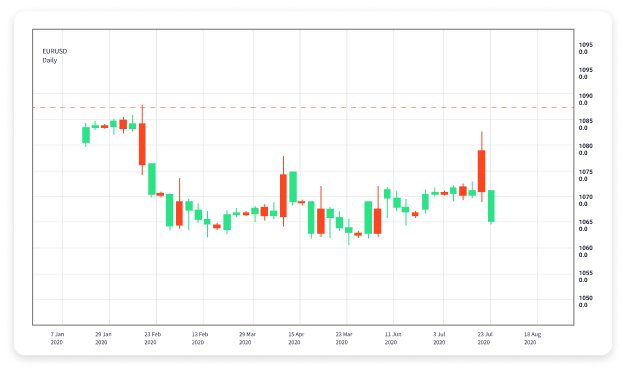Understanding Forex Trading Regulations A Comprehensive Guide 1577469969

Understanding Forex Trading Regulations: A Comprehensive Guide
Forex trading has become increasingly popular in recent years, attracting individuals and institutions from all over the globe. However, before diving into the markets, it is crucial to understand the regulations that govern this trading landscape. Regulations in Forex are designed to create a fair, transparent, and secure environment for traders. In this article, we will cover the key aspects of Forex trading regulations, their impact on traders, and the importance of compliance. Additionally, we will provide insights into various forex trading regulations Forex Trading Apps that can help navigate through these regulations effectively.
The Importance of Forex Trading Regulations
Regulations in Forex trading serve several essential purposes. Primarily, they protect traders from fraud and malpractice that can occur in an unregulated environment. They also ensure market integrity by implementing rules that prevent manipulation and ensure a level playing field for all participants. Furthermore, regulations promote transparency, which is vital for building trust among traders and investors.
Key Regulatory Bodies
Different countries have their own regulatory bodies responsible for overseeing Forex trading. Some of the most notable include:
- Commodity Futures Trading Commission (CFTC) – USA: The CFTC is tasked with regulating the U.S. derivatives markets, including Forex trading. They ensure that market participants adhere to strict standards, promoting financial integrity.
- Financial Conduct Authority (FCA) – UK: The FCA oversees the conduct of financial service firms and protects consumers while maintaining competition in the financial markets.
- Australian Securities and Investments Commission (ASIC) – Australia: ASIC regulates corporate and financial services sectors to promote fair and transparent markets.
- European Securities and Markets Authority (ESMA) – EU: ESMA works to enhance investor protection and promote stable and orderly financial markets. They are also responsible for policymaking across EU member states.
Types of Regulations
Understanding the types of regulations in Forex trading is crucial for both new and experienced traders. Here are some key types:
1. Licensing and Registration
Many countries require Forex brokers to be licensed and registered with the relevant regulatory authorities. This licensing ensures that brokers meet minimum capital requirements, adhere to strict anti-money laundering (AML) standards, and maintain proper risk management practices.
2. Leverage Limits
Regulations often impose limits on the amount of leverage that brokers can offer to retail clients. This is particularly important as high leverage can lead to significant losses and has been a contributing factor in many trader bankruptcies. Different regions, such as the EU and the U.S., have different leverage limits, with the aim to protect traders from excessive risk.

3. Transparency Requirements
Regulatory bodies mandate that Forex brokers provide transparent pricing and trading conditions. This includes disclosing spreads, commissions, and the methods used for executing trades. Transparency helps traders make informed decisions and fosters trust in the trading environment.
4. Investor Protection
Many regulatory bodies have implemented investor protection mechanisms, such as segregating client funds from the broker’s operating funds. This means that if a broker becomes insolvent, clients’ funds are still protected and can be returned.
Global Compliance Considerations
With Forex trading occurring on a global scale, compliance with multiple jurisdictions can be challenging. Traders must understand that Forex brokers may be regulated in one country while targeting clients in another. This can lead to discrepancies in legal requirements and consumer protection. Traders are advised to conduct due diligence when selecting a broker, ensuring they are appropriately licensed and regulated in their jurisdiction.
The Role of Technology in Compliance
Technology plays a significant role in helping Forex brokers and traders alike comply with regulations. Advanced trading platforms and Forex Trading Apps offer features that automate compliance processes, monitor trading activities, and ensure that risk management practices are followed. Additionally, the use of Artificial Intelligence (AI) and machine learning in monitoring transactions and analyzing data helps to detect suspicious activities and prevent fraud.
Challenges with Regulations
While regulations are crucial for protecting traders, they can also pose challenges. Some traders may feel that regulations limit their trading flexibility or potential profits through restrictions on leverage and position sizes. New regulations can also create uncertainty in the market, particularly during transitional periods as brokers adapt their business models to remain compliant.
The Future of Forex Trading Regulations
The landscape of Forex trading regulations is continually evolving. As market conditions change and new financial products emerge, regulatory bodies are likely to adapt their approaches. Innovations such as cryptocurrencies and decentralized finance (DeFi) may push regulators to rethink existing frameworks and address new challenges. Traders should stay informed about any regulatory developments as these may impact their trading strategies and practices.
Conclusion
Understanding Forex trading regulations is crucial for anyone looking to succeed in this market. Familiarizing oneself with the various aspects of regulation helps in mitigating risks and enhancing trading experiences. By keeping abreast of the regulatory environment and choosing reputable brokers that comply with these standards, traders can create a safer trading environment. The incorporation of technology into compliance practices will likely continue to enhance the industry’s response to regulation, further protecting traders and promoting healthy market activities.
